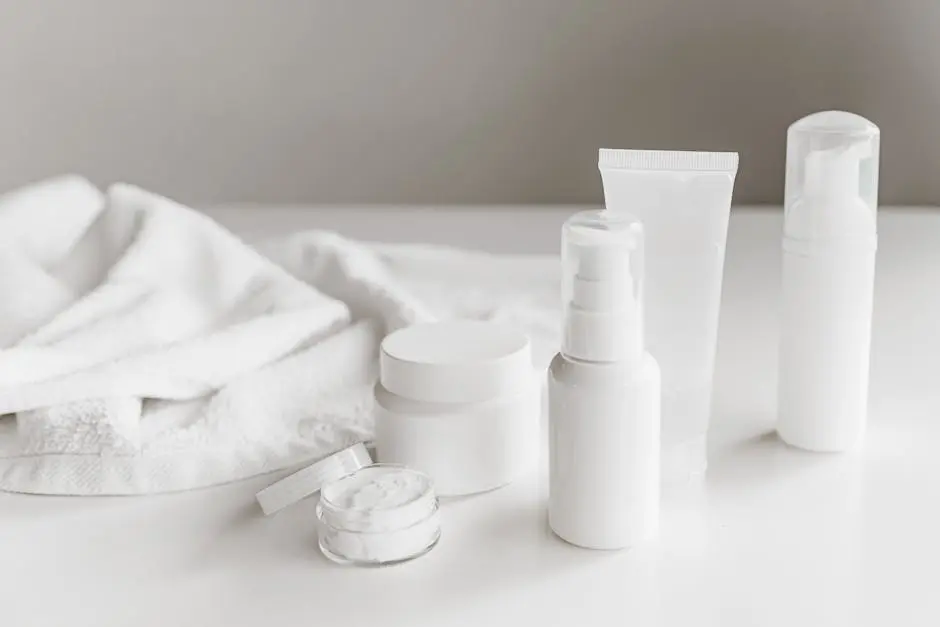Sensitive skin can be tricky to manage, with various products causing irritation or discomfort. Knowing the right ingredients to look for can make a world of difference. Let’s explore the best options for nurturing sensitive skin in a way that’s gentle yet effective.
Choose Natural Oils for Moisturization
Natural oils like jojoba, almond, and coconut provide deep hydration without clogging pores. They’re rich in essential fatty acids and vitamins that help soothe and nourish sensitive skin. These oils are lightweight yet effective, making them suitable for both day and night use. They also form a protective barrier, locking in moisture and keeping harmful environmental elements at bay. For those concerned about allergies, patch testing is crucial to ensure these oils work harmoniously with your skin.
Applying oils immediately after a shower can enhance their effectiveness. The skin is more receptive to absorbing moisture when slightly damp, ensuring oils penetrate deeper and perform better. For sensitive skin, this can mean the difference between a flaky complexion and one that is smooth and supple.
Choosing oils that are cold-pressed maintains the integrity of the fatty acids and vitamins they contain. The pressing method ensures the nutrients are not broken down by heat, preserving their natural healing properties.
Look for Calming Botanical Extracts
Ingredients such as chamomile, aloe vera, and green tea have anti-inflammatory properties and can reduce redness and irritation, making them ideal for sensitive skin. Chamomile’s calming effect is well-documented, soothing irritation while providing a gentle aroma that can relax the senses.
Aloe vera is a universal favorite, known for its hydrating and soothing properties. It’s a versatile extract that can be found in gels, creams, and even ointments designed to relieve sunburns. When applying aloe vera, a thin layer is all that’s needed to achieve its calming benefits.
Green tea isn’t just a favorite beverage; its extract provides antioxidant protection, which is crucial for sensitive skin prone to oxidative stress. Incorporating green tea into your routine can provide a subtle level of protection against pollutants and the damaging effects of the sun.
Opt for Fragrance-Free Products
Fragrances, whether natural or synthetic, can be a common irritant. Choosing fragrance-free products can help minimize the risk of allergic reactions. Many consumers believe fragrance-free products are devoid of odor, but they may possess natural scents from the ingredients themselves, which usually signifies purity.
Some products may contain naturally derived fragrances masked as essential oils. For someone with sensitive skin, even natural scents can provoke a reaction. It’s crucial to understand labeling and identify items genuinely free of irritating fragrances.
Use Hyaluronic Acid for Hydration
Hyaluronic acid is a powerful hydrator that can hold up to 1000 times its weight in water, providing moisture without irritation. It’s a great addition to any sensitive skin routine. Imagine a sponge drawing in water, swelling and softening – hyaluronic acid operates similarly in the skin.
For sensitive skin, using products with varying molecular weights of hyaluronic acid can be particularly beneficial. Heavier molecules help create a protective barrier, while lighter molecules penetrate deeper into the skin, enhancing hydration from within.
Avoid Harsh Cleansing Agents
Detergents like sodium lauryl sulfate can strip the skin of natural oils. Instead, opt for gentle, sulfate-free cleansers to keep sensitive skin calm and hydrated. These mild formulations help restore the natural pH balance, crucial for maintaining the skin’s protective barrier.
Selecting cleansers with micellar technology offers a gentle yet effective cleaning experience. Micelles are tiny oil molecules that attract dirt and oil, lifting them off your skin without harsh scrubbing. This makes cleansing far less abrasive and irritating.
Incorporating a double cleansing method can be beneficial. Initially, removing makeup and impurities with an oil cleanser followed by a gentle, hydrating cleanser ensures a thorough cleanse without the need to resort to harsh soaps.
Final Thoughts on Nurturing Sensitive Skin
Choosing the right ingredients for sensitive skin means prioritizing soothing and non-irritating components. Natural oils, calming extracts, and mild formulations can help maintain your skin’s health and comfort. Always remember to patch test new products and listen to your skin’s unique needs.










